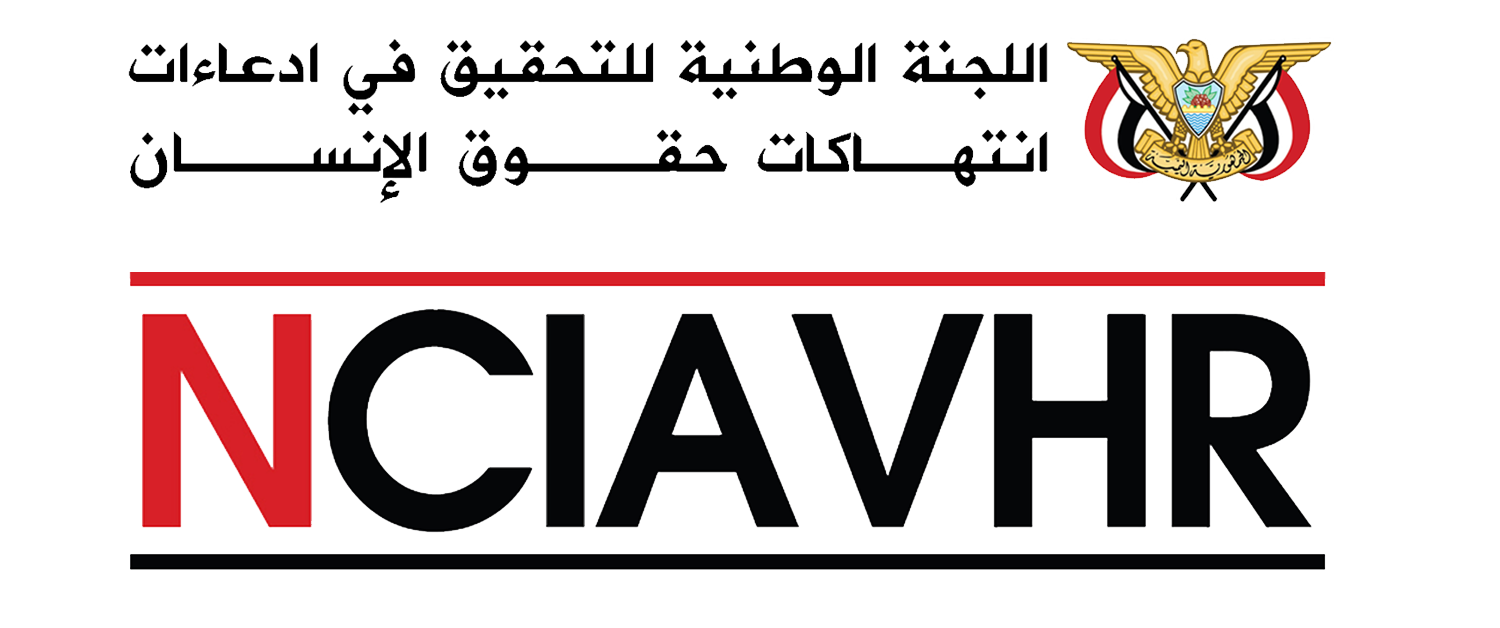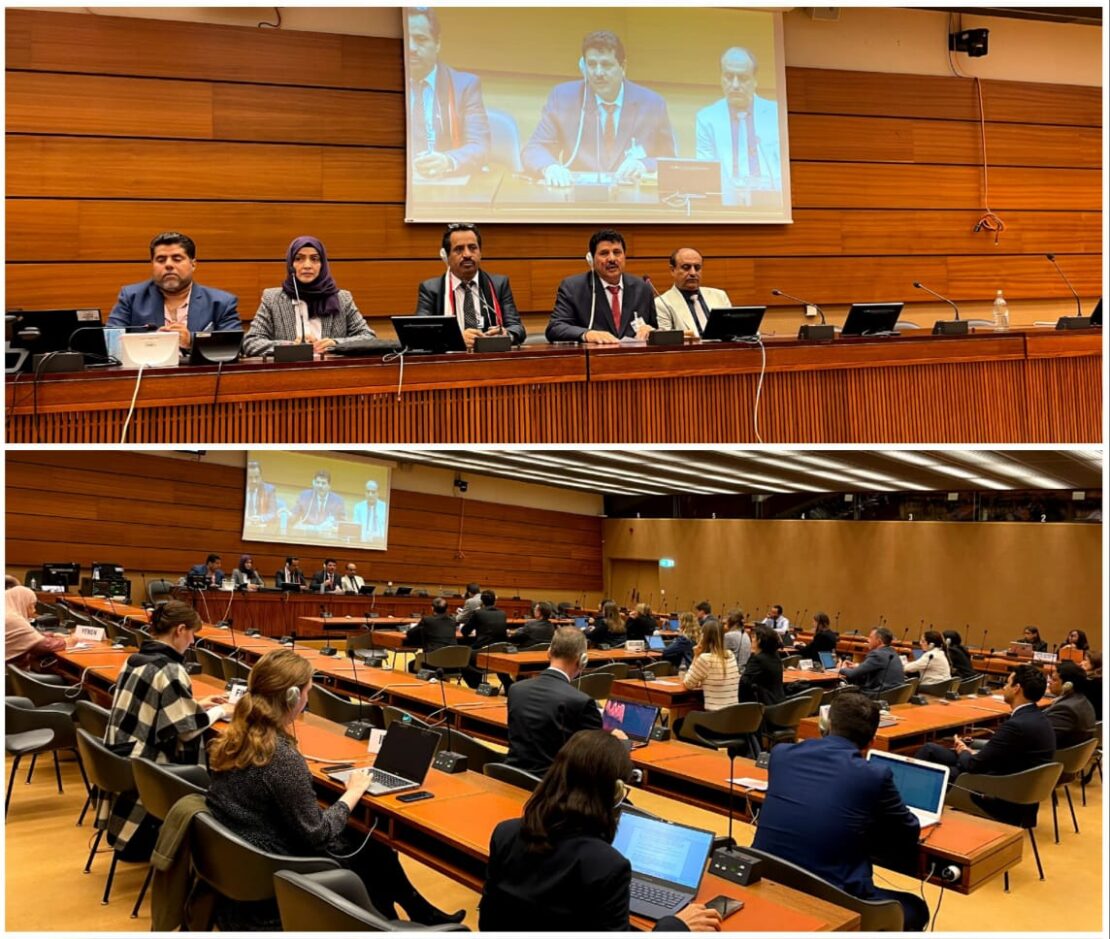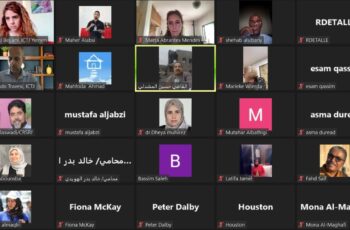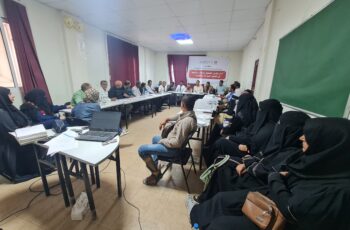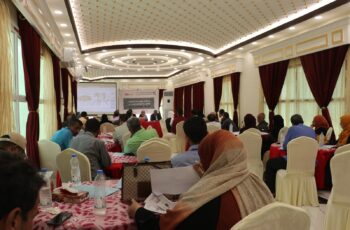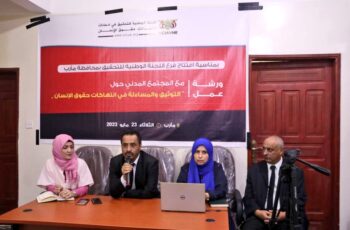NCIAVHR Reviews its 11th Report at the United Nations Palace in Geneva
Geneva,
Friday, September 22, 2023
The National Commission to Investigate Alleged Violations of Human Rights (NCIAVHR) presented its periodic eleventh report in a discussion seminar at the United Nations Palace in Geneva on Friday, on the sidelines of the 54th session of the Human Rights Council.
The seminar was attended by 28 representatives of diplomatic missions from the United States, European Union countries, Arab and African countries in Geneva, and 16 representatives of United Nations bodies, international and local non-governmental organizations, and media outlets.
During the discussion seminar, which began with the national anthem, updates on human rights in the Republic of Yemen and the efforts of the Commission during the years 2022 and 2023 were presented.
The Commission also reviewed its important tasks, field investigations, monitoring and documentation, field visits, activating the judiciary, and the main outcomes and statistics documented during its seven-year work journey, with a total of 48,446 victims recorded.
During the event, the Chairman of the Commission, Judge Ahmed Al-Muflehi, explained the commission’s work mechanism, jurisdiction, report methodology, and the violations it investigated. Mr. Al-Muflehi further stated that the current report complements previous periodic reports and is an integral part of them, especially regarding jurisdiction statement, legal framework, methodology, and working methods.
Commission member Judge Ishraq Al-Muqtari also presented an overview of the findings of the eleventh report and the important work accomplished by the Commission in terms of field visits to areas witnessing ongoing violations, and public and confidential hearings. Ms. Al-Muqtari also highlighted the cooperation between the Commission’s local and international civil society organizations and the Office of the High Commissioner for Human Rights.
In his turn, Commission member Judge Nasser Al-Awadhi presented the recommendations included in the eleventh report, directed to all parties to the conflict, including specific recommendations addressed to the Houthi group, the Yemeni government, the Arab coalition, and the international community.
In his final remarks, Deputy Chairman of the Commission Judge Hussein Al-Mushadali emphasized the presence of the committee’s monitors in all Yemeni governorates, including areas controlled by the Houthis, despite the difficulties and obstacles they face. He explained that the work of the judiciary should follow the Commission’s monitoring and investigation activities to ensure justice for the victims.
Representing civil society, legal advisor Hani Al-Aswadi, President of the Haqqi Center for Rights and Freedoms, expressed his appreciation for the development of the Commission in terms of structure, methodology, and comprehensiveness of its reports as a model for national mechanisms in the Arab region.
In their interventions during the seminar, participants emphasized the importance of such work carried out by the Commission and the significant amount of important information included in its successive reports, which can contribute to achieving justice for the victims. They also highlighted the importance of the Commission’s role in enhancing the role of the judiciary in protecting human rights.
